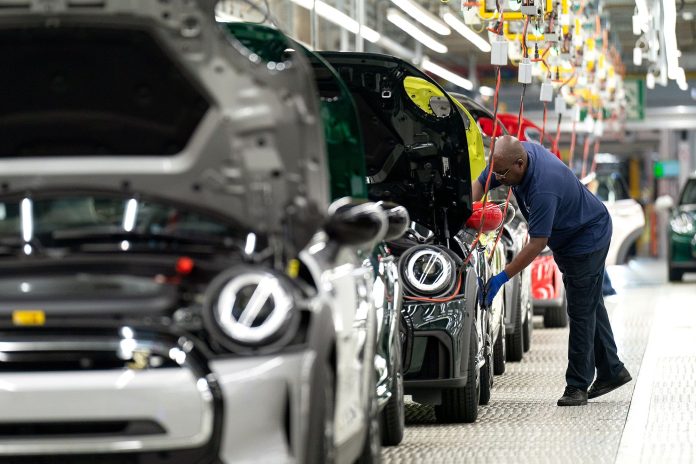Britain’s electric car industry will be at risk of being decimated when the delay in the introduction of tariffs on cars sold between the UK and the EU ends, a leading trade expert has warned, according to i.
Electric cars travelling between the UK and the EU will be subject to a 10 percent tariff after the grace period expires in 2027, adding thousands of pounds to the cost of the vehicle.
A post-Brexit renegotiation of the trade agreement is unlikely to solve the problem of “rules of origin” requirements that have delayed tariffs until 2027, said William Bain, head of trade policy at the British Chambers of Commerce.
In addition, the European Union is set to offer Labour a post-Brexit reset if Sir Keir Starmer wins the next general election and 2026 is set aside to renegotiate the Trade and Cooperation Agreement (TCA).
Due to recent developments, which include growing tensions between the EU and China, batteries are now the most expensive component of electric vehicles, dominated precisely by China.
Both Britain and the EU, incidentally, have used the TCA to try to incentivise the creation of a European battery industry for electric cars and to be less reliant on Chinese imports. But manufacturers are still reliant on Chinese supplies because the EU and UK electric car supply chains are not yet sufficiently developed for electric cars to comply with the rules.
Unless there’s a huge change in the pattern of where UK and EU car manufacturers are sourcing the batteries from, or the components or critical minerals within EVs, we could be facing another cliff edge for January 2027, Mr Bain told i.
The TCA provides for tariff-free trade between the UK and the EU, but only applies to goods made in the UK and the bloc. And under the post-Brexit “rules of origin” between the EU and the UK, from 2024, electric cars must be 45 percent made in the EU or the UK, cells and battery packs require 50-60 percent, otherwise they will be subject to 10 percent UK or EU import tariffs.
Vauxhall – Stellantis said that without this, the company would face crippling tariffs on exports, making it unable to produce electric cars in the UK.
Mr Bain remarked that it was “theoretically” possible that a renegotiation of the TCA could permanently solve the battery tariff problem, the government and Brussels officials lacked the “political will” to renegotiate the rules of origin in the trade agreement.
He also indicated: “It’s not necessarily the case that the extension of the application of the rules of origin on EVs and batteries is bound up in any operational review of the TCA.”
Speaking of alternative solutions, one feature that some EU officials have noted is for the UK to apply to join the Pan-European Mediterranean Convention (PEM) on rules of origin. This pact links more than 20 countries in Europe, the Middle East and North Africa and treats goods assembled in one country from parts produced in another signatory country as having been produced in the exporting country to avoid tariffs and quotas.
The proposal has been well received in the UK: “That’s something that’s potentially negotiable. So that could help, certainly,” said David Henig, UK Director at the European Centre for International Political Economy.
Despite this, he added: “I think it’s going to be a while before the UK or European made cars are as competitive as China.”
